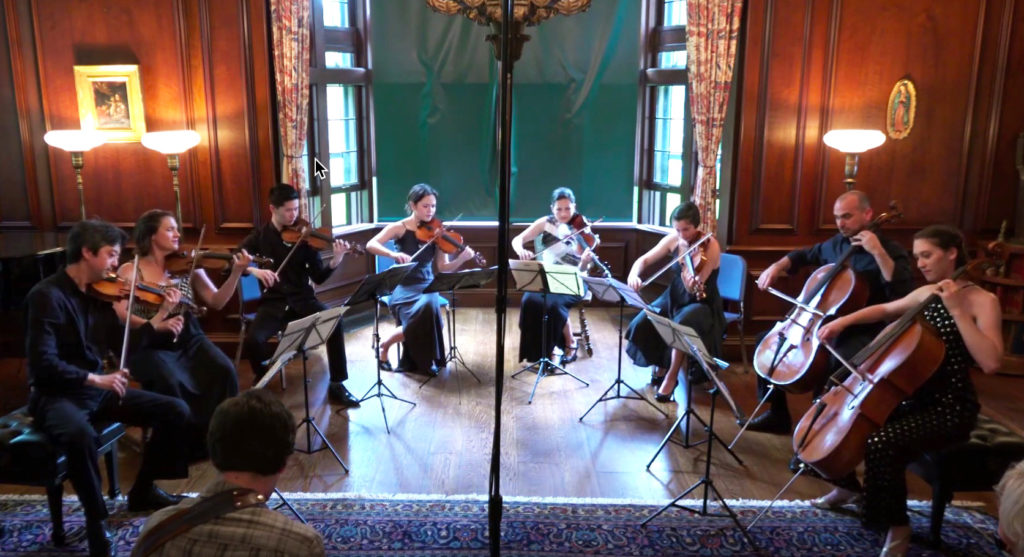by Jarrett Hoffman

Most impressive was the sense of ensemble and camaraderie among the members of the octet. Differences in age and experience were no problem: these were comfortable chamber music partners, trading gestures with clarity, exchanging glances meaningfully, and achieving a beautiful blend and combined sense of purpose. A concept from an old science fiction book came to mind: it was as if you could physically see the bonds among the players, like strands of yarn connecting them and growing thicker along the way.
Nelson Lee of the Jupiter led like a true captain, steering the ensemble with clarity and assuredness through the waves of excitement in the first movement, the darker energy of the second, the playful and dreamy moods of the third — which felt a little messy compared to the rest — and the laser energy of the finale. There the octet seemed to shift into higher and higher gears, further than you realized existed, until finally after the last cadence they were met with immediate and thunderous applause.
On the first half, soprano Dina Kuznetsova joined pianist Hyunsoo Kim in selections by Dvořák (from V Narodnim Tonu and Cigánské melodie), Janáček (four of his Moravian Folk Poetry in Songs), and Martinů (four of his New Slovak Songs), as well as a Russian medley bringing together Dvořák’s “Song to the Moon” from Rusalka and two works by Soviet composer Boris Fomin.
Throughout, Kuznetsova contributed a rich tone, a wide vocal range, an engaging stage presence, and a charming sense of storytelling. Her changes of tone color were alluring, especially when she dropped down to a shadowy yet charged piano — if a voice could wink, hers did. Though she was flexible in dynamics, her bread and butter seemed to be an expansive forte, impressive even if it began to feel like too frequent an interpretive choice, and one that at times was too much for the small room. Kim was passionate, sensitive, and delightfully attentive to subtleties of the piano part, not taking any passage for granted.
Near the end of the first half, Kuznetsova spoke engagingly about this repertoire. It made you wish you could’ve heard more of her insights along the way to help delineate the arc of the set.
Published on ClevelandClassical.com June 17, 2019.
Click here for a printable copy of this article


